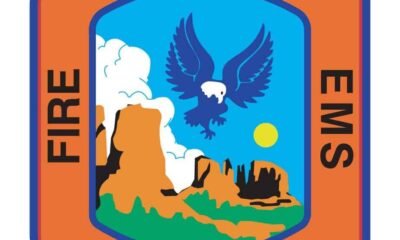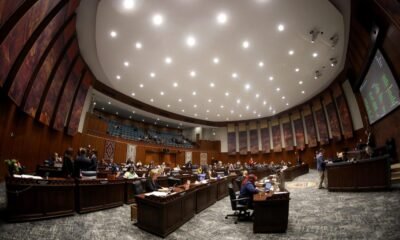Business
Should Scottsdale Unified School District Embrace More Expert Leadership?

By W.H. Williams |
The Scottsdale teachers’ union has publicly endorsed three candidates for the Scottsdale Unified School District (SUSD) Governing Board, highlighting their backgrounds in education. However, the debate persists: should SUSD prioritize seasoned professionals or individuals focused on common sense and respect for parents’ rights?
Under Dr. Menzel’s leadership, the district has witnessed a troubling downturn in academic performance, coupled with high turnover rates among students and staff. Promises of improvement through social-emotional learning (SEL) have not materialized, raising concerns about the effectiveness of current strategies.
SUSD has lost over 2,200 students during Menzel’s tenure, raising questions about the direction taken by him and the board members who support him. This exodus, alongside record-high staff turnover, paints a troubling picture of the district’s environment.
Critics argue that SEL initiatives may inadvertently harm students’ emotional and mental health. An increased reliance on social workers and counselors has diverted funds from teachers, potentially exacerbating the district’s academic challenges.
The candidates endorsed by the union—Dr. Donna Lewis, Matt Pittinsky, and Michael Sharkey—each have records that provoke skepticism regarding their ability to lead effectively. While they assert a commitment to “protect SUSD,” their connections to the current administration raise alarms about continuity rather than change.
Dr. Lewis boasts of accolades, including national superintendent of the year during her tenure in the Creighton School District. However, she has faced criticism for a hostile work environment that led to a public apology from a board member after her exit. Critically, her proclaimed advancements in academic performance contrast starkly with the reality of low proficiency rates in core subjects.
Pittinsky, with a lengthy career in education, has faced scrutiny over undisclosed business ties to SUSD. His acceptance of significant campaign contributions from out-of-state donors who profit from school services has prompted questions about transparency and possible conflicts of interest.
Michael Sharkey’s stance links the struggles of SUSD to the rise of the parents’ rights movement, which he believes is detrimental. He asserts that trained professionals should make educational choices, suggesting a diminished role for parents in critical decisions—an approach at odds with Arizona’s laws that uphold parental rights.
Sharkey’s eagerness to engage families is questionable, particularly given previous remarks that sought to limit parental involvement. It raises further concerns about his understanding of the legal framework governing parental rights in education.
This election presents a pivotal choice for constituents. Voters face the option of retaining board members aligned with the current administration—amidst evident failures—or opting for candidates like Gretchen Jacobs, Jeanne Beasley, and Drew Hassler, who emphasize academic responsibility and parental respect.
Change is imperative. The future of Scottsdale’s students depends on decisions made in this crucial election.
Mr. Williams is a longtime Scottsdale resident, businessman, grandfather, and parent of an SUSD graduate.


















